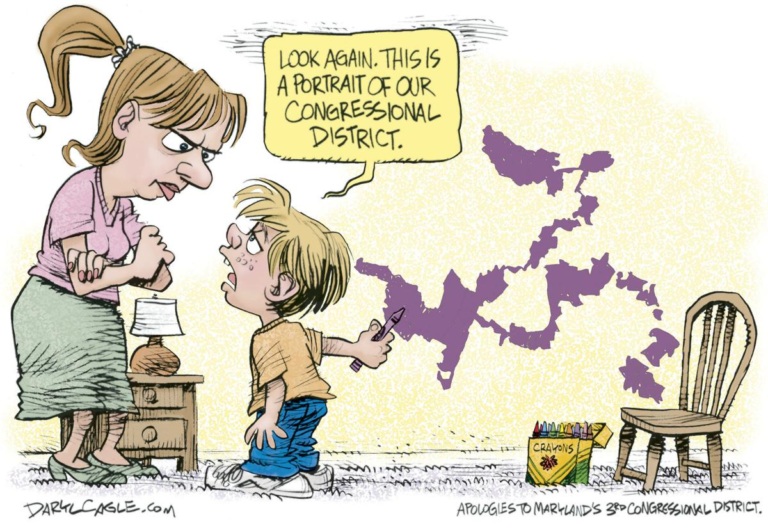
On October 7, 13 men associated with anti-government militias were arrested in a plot to kidnap Michigan Governor Gretchen Whitmer.
According to an FBI affidavit, the conspirators—some of whom formed a militia group called the Wolverine Watchmen—planned to kidnap the Governor and put her on “trial” for treason. Investigators testified that the men also discussed targeting Virginia Governor Ralph Northam.
Whitmer, a recently-elected Democrat, endured intense intense criticism from libertarians and business owners for seemingly-draconian measures to slow the spread of the coronavirus this spring. Governing a state which had the third-most cases in the country, Whitmer extended her previous stay-at-home order to include additional categories of economic activity, such as retail of paint and gardening products.
Whitmer’s order fomented some of the earliest and largest protests against COVID-19 restrictions in the U.S. In one headline-making rally on May 1, demonstrators entered the State Senate gallery with assault rifles, prompting the state Senate to adjourn. A state senator told NPR that at least two men charged in the Whitmer plot were in the gallery that day. Vanderbilt sociology professor Amy Cooter, who has studied Michigan’s militias extensively, reported that the Wolverine Watchmen were “regulars” at armed protests in Lansing against pandemic-related restrictions.
Whitmer’s order also drew the attention of the president, who tweeted “LIBERATE MICHIGAN” and derisively referred to the Governor as “the woman from Michigan.” Just this past Sunday, Trump told a rally in Michigan that “you’ve got to get your governor to open up your state” while encouraging chants of “lock her up.”
Like his more recent requests for the Proud Boys to “stand back and stand by,” Trump’s affirmation of anti-government demonstrators likely had the effect of emboldening groups like the Wolverine Watchmen.
In plotting to kidnap Governor Whitmer, the Watchmen held planning meetings and weapons training sessions; in one session someone tried to test a homemade bomb, which did not detonate. The plotters also conducted a surveillance mission of Whitmer’s vacation residence, where they later planned to impersonate delivery workers and abduct her.
The ultimate goal for the Wolverine Watchmen was not just the symbolic abduction of a sitting Governor. According to Michigan Attorney General Dana Nessel, their ultimate aim was to “instigate a second Civil War”—what they called “the boogaloo.”
The “boogaloo movement” is a web-based ideology reaching tens of thousands of users that advocates for the upheaval of the U.S. government. Its ideology is much more nebulous, and its organization much looser than established right-wing groups like the Proud Boys and the Three-Percent.
The Anti-Defamation League (ADL) describes Boogalooers as primarily “anti-government, anti-authority and anti-police.” While some Boogaloo adherents have ties to white supremacist groups, the ADL finds that “most boogalooers are not white supremacist.” In contrast to many other militia groups, some boogaloo adherents marched “in solidarity” with BLM protesters in Minneapolis this May.
“Civil War II, Electric Boogaloo” began as a meme on the weapons forum on 4chan, a site whose (related yet distinct) politics forum is infamous as the internet home of the alt-right and the origin of memes like Pepe the Frog. However, the Boogaloo community only rose to prominence after migrating to Facebook, where their groups often operated under names like “Big Igloo Bois” and “Big Luau” to evade content moderators.
The growth of the Boogalooers was part of a broader trend—as ADL research fellow Mark Pitcavage remarked, “From 2008 to 2020, Facebook was sort of the chosen social media platform of the militia movement.”
The role for Facebook and other social media platforms play in fostering radicalization has been well documented in the academic literature and the popular press. In particular, there are growing concerns that Facebook is not only leaving extremism and hate speech unchecked, but algorithmically promoting it. A Wall Street Journal report in May included an internal 2016 presentation which showed that “64 percent of all extremist group joins are due to our recommendation tools…Our recommendation systems grow the problem.”
According to Professor Cooter, the Wolverine Warriors formed on Facebook this spring specifically in response to state lockdown orders, and they used Facebook as a key recruiting tool, as well as a sounding board for rage (in one call to action, a group leader called Whitmer a “tyrant b****” according to the affidavit).
For the Watchmen, Facebook enabled its rise, but also led to its downfall. Facebook says it played a “proactive” role in bringing down the plot, reporting the group to law enforcement six months ago, which enabled the FBI and its informants to thoroughly infiltrate the operation long before they posed a legitimate threat.
Matt Perrault, a former Facebook employee who now conducts research at Duke told The Guardian that “the Michigan case should be seen as an example of Facebook being part of the solution to dealing with extremist radicalization in the U.S.” While this is clearly a self-serving sentiment, he isn’t alone in that assessment. A research brief from START, a UMD research center studying terrorism, noted that although social media “has contributed to the acceleration of radicalization of U.S. extremists…activity on open social media platforms, such as Facebook and Twitter, played a key role in the identification and interdiction of U.S. foreign fighters and terrorism suspects in several recent cases.”
Pitcavage and many others maintain that Facebook still fell short in this episode. Despite alerting the FBI, Facebook did not take any action against the Watchmen or other Boogaloo groups. It was only in late June—following two shootings of police officers by “boogaloo boys” in California—that Facebook began to crack down on the Boogaloo network, purging hundreds of Facebook groups and accounts, including a Wolverine Watchmen group. In a blog post, the company wrote that it was only “these acts of real-world violence” that lurched the company into action.
Even a corporate behemoth like Facebook cannot cure America of violent extremism. Separating sardonic trolls from violent ideologies can be tricky work, and the Facebook purge was rather porous. But even if Facebook managed to wipe any mention of the Boogaloo off their servers, these groups would likely just retreat to 4chan.
But this should not be cause for nihilistic inaction—Facebook is giving these groups a platform for recruitment and broadcasting that can only be bestowed by the biggest social network on Earth.
Taking action against the right-wing may involve targeting their mainstream benefactors—chief among them President Trump. Like many social media companies, Facebook has struggled with how to handle the rhetoric of the president and his allies.
Right-wing media organizations like The Daily Wire have been more successful on Facebook than their liberal counterparts, dominating the site’s leaderboard of most-interacted posts. According to the Wall Street Journal report, Facebook executives feel that any retreat from the status quo could therefore be interpreted as conservative bias. So even though their internal audit did not identify any instances of anti-conservative bias, Facebook has been wary to address extremism out of fear for political blowback from Republicans. Of course that blowback has come anyways
Facebook and other social media sites have the power to hold hate groups in check, and they need to be aggressive in doing so. If Facebook wants part of the credit for thwarting groups like the Wolverine Watchmen, it will also need to take part of the blame for their proliferation of these groups, and part the responsibility for pinning down these groups in the future.


